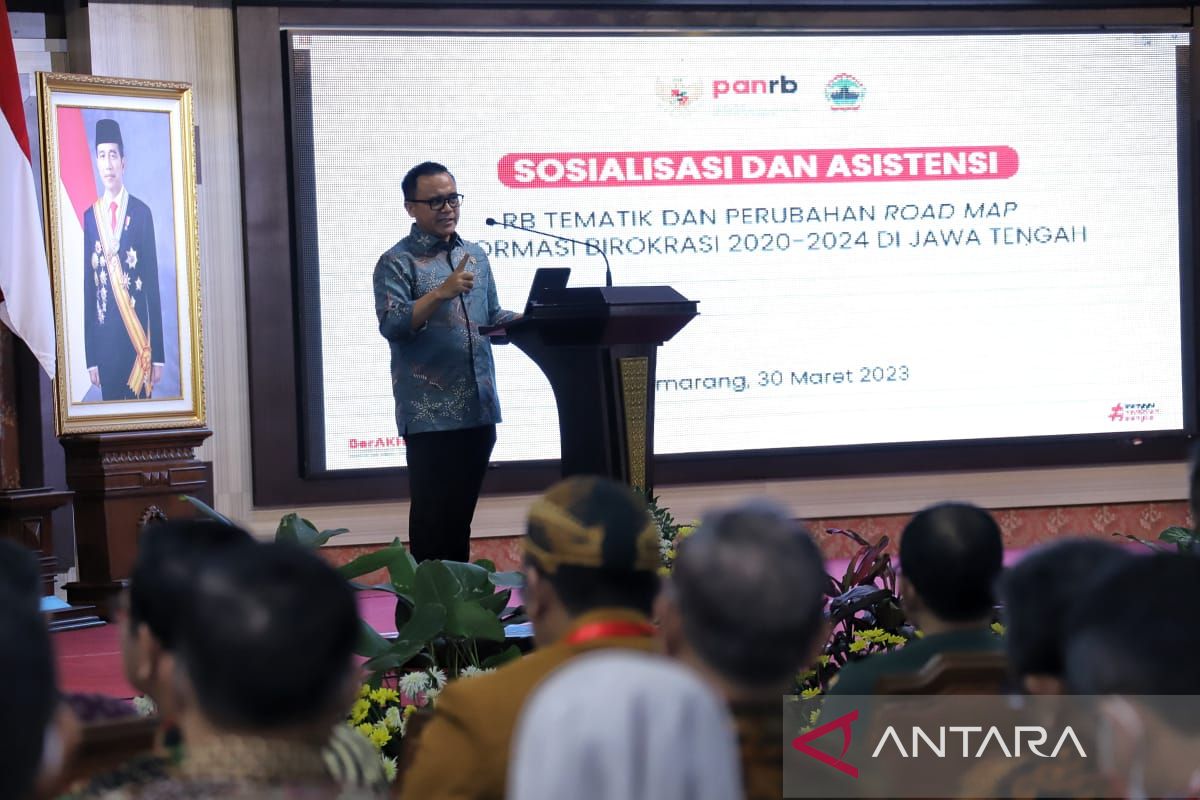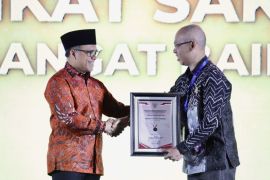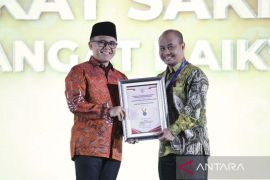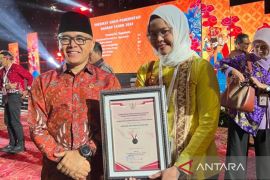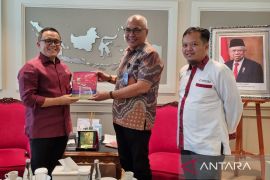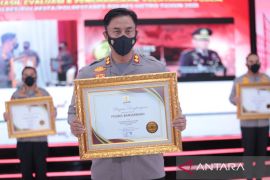Jakarta (ANTARA) - The Administrative and Bureaucratic Reform Ministry has simplified the bureaucratic reform evaluation procedure as per President Joko Widodo's directive in order to pursue more efficient public development.
"This simplification will result in huge budget efficiency, reaching at least Rp150 billion annually, (that budget) can be used to fund the more beneficial development programs," Administrative and Bureaucratic Reform Minister Abdullah Azwar Anas informed.
He delivered the statement during an event on thematic bureaucracy reform and the 2020–2024 bureaucracy reform road map changes in Semarang, Central Java, on Thursday.
The lengthy process involved 259 indicators and administrative requirements, which needed to be filled by the participants, he added. Moreover, there were also thousands of pages of reports that needed to be filed during the evaluation, he noted.
With the simplification of the process, only 26 indicators will now be considered for evaluation. One of the simplification steps has been the removal of the Independent Evaluation of Bureaucracy Reform.
Minister Anas informed that the projected budget saving is an estimate of the budget that the government has to disburse for the independent evaluation of needs such as consultations and meetings.
"So we will remove independent evaluation on bureaucratic reform evaluation," Anas stressed.
He also said that in order to start bureaucracy reform anew, the ministry has issued Administrative and Bureaucratic Reform Ministry Regulation Number 3 of 2024 about changes to the 2020–2024 bureaucratic reform road map.
It will need a few years until people can feel the tangible effects of the bureaucratic reform, he added.
"Hence, bureaucratic reform has to target the main issues in development, which if resolved, will result in tangible effects. This bureaucratic reform impact is what is being aimed through thematic bureaucratic reform," he said.
Thematic bureaucratic reform is a framework, which is used to resolve management issues regarding government priority programs.
The reform focuses on four things: poverty eradication, investment, government administration digitization, as well as President Joko Widodo's priority programs, such as domestic product use and inflation suppression.
Related news: Minister, former PM Tony Blair discuss digitalization of bureaucracy
Related news: Civil servants must improve performance for tangible results: Anas


